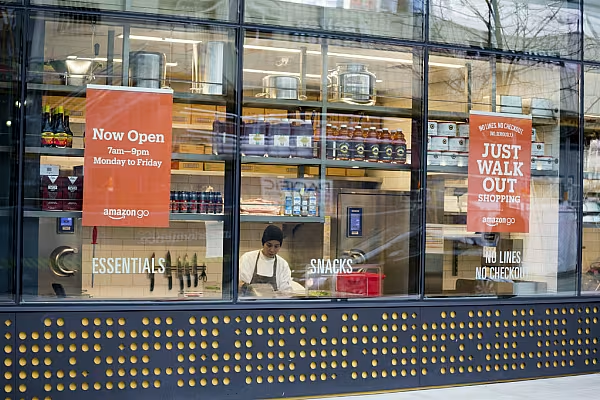The Amazon Go-style cashierless store concept is being heralded as the next big thing in convenience retailing, except in Philadelphia, USA, that is.
In February, Philadelphia mayor Jim Kenney signed a new bill requiring that all stores must accept cash; the first time a major US city has made such a declaration. With the legislation set to be enacted at the start of July, it could be the first time that efforts have been made to growth of the curb the cashless-store concept developed by Amazon and others.
“Most of the people who don’t have credit tend to be lower income, minority, immigrants," a Philadelphia councilman told the Wall Street Journal last month. "It just seemed to me, if not intentional, at least a form of discrimination.”
Following Philadelphia's move, San Francisco, Chicago, Washington, D.C., and New York are all reportedly considering introducing a ban on cashless stores, to prevent unnecessary discrimination.
Setting A Precedent
Commenting on the measure, e-commerce delivery expert ParcelHero has said that the move could set a precedent for other markets – in the UK, Tesco and the Co-op are trialling cashless technology, as is Albert Heijn in the Netherlands, not to mention countless other retailers in Europe and Asia.
"Fears that cashierless stores could disproportionally affect minorities from low-income households, who don't have smart phones or online bank access, have led the American city of Philadelphia to pass a ban on all cashless stores – including till-less shops. And it’s a move that could be followed across the USA and on this side of the Atlantic," says ParcelHero’s head of consumer research, David Jinks.
"But worries about the impact of the spread of such stores on elderly and disadvantaged households which don’t have access to payment apps and online accounts led Philadelphia’s mayor to sign a bill last month prohibiting cashless stores; and a New York councillor is pushing for a similar ban."
Protecting The Elderly
In the UK, Jinks believes that cashierless stores could be prohibited even before the technology has had time to take root.
"Concerns that the vulnerable and elderly don’t have access to electronic payment methods means the Government frequently insists on the retention of old-fashioned payment methods," he said.
"For example, many merchants are still forced to accept cheques – even though they were supposed to be phased out last year - because the UK Government backtracked on their withdrawal as they are still used by elderly shoppers."
"There's also no change to its position on small change. Against its own Treasury’s advice, the Government is insisting on the retention of low value coins - even though three-quarters of all transactions are now made by card. Again, this is because poorer households and the elderly may have limited access to full bank services. Clearly this approach needs updating as inflation means the 1p piece is now worth considerably less than the 1⁄2 p was before its withdrawal in 1984."
Could this prove a fillip to traditional high street stores? Jinks believes this is likely, however it would curtail the retail sector from moving forward as an industry.
"With High Street stores fighting for their lives, the benefits of queue-free shopping and the considerable savings in wages cashierless stores offer retailers are exactly what is needed," he said. "But if the Philadelphia experiment of banning such stores spreads to the UK, that would spell the end of these trials."
© 2019 European Supermarket Magazine – your source for the latest retail news. Article by Stephen Wynne-Jones. Click subscribe to sign up to ESM: European Supermarket Magazine.














